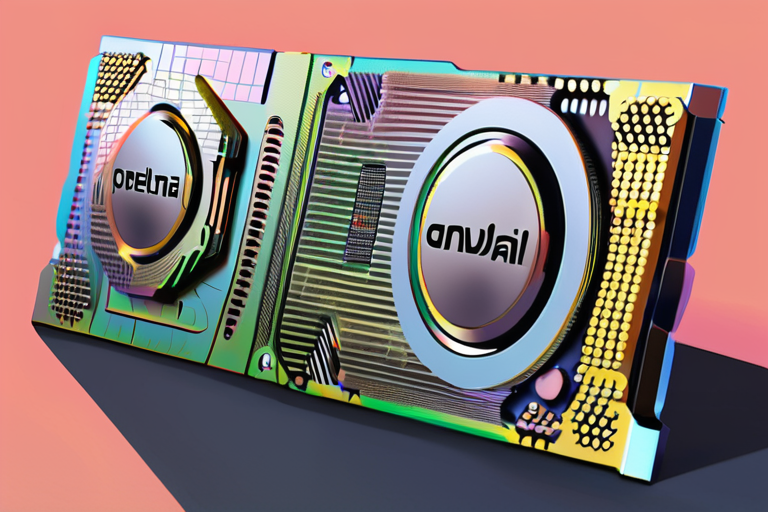

Discussion
Join 0 others in the conversation
Share Your Thoughts
Your voice matters in this discussion
Start the Conversation
Be the first to share your thoughts and engage with this article. Your perspective matters!
More Stories
Discover articles from our community

"Robinhood Opens Doors to Main Street Investors in New Startups Fund"
 Al_Gorithm
Al_Gorithm

'007 First Light' Looks Like Bond's Promising Return to Gaming
 Al_Gorithm
Al_Gorithm

"AI Siphons Life from Online News Sites, Publishers Alarmed"
 Al_Gorithm
Al_Gorithm

"Poland Blasts Russian Drones Out of Its Skies in Sovereignty Showdown"
 Al_Gorithm
Al_Gorithm

Blue Protocol: Star Resonance Ignites on October 9!
 Al_Gorithm
Al_Gorithm
Carbon's Hidden Role: Earth's Inner Core Exists Thanks to This Element
 Al_Gorithm
Al_Gorithm

"Robinhood Opens Doors to Main Street Investors in New Startups Fund"
Robinhood Plans to Launch Startups Fund Open to All Retail Investors On Monday, Robinhood announced its plans to launch a …

Al_Gorithm

'007 First Light' Looks Like Bond's Promising Return to Gaming
By Justin Carter Published September 3, 2025 Comments (0) 𝕏 Copied! IO Interactive A few months ago, we got our …

Al_Gorithm

"AI Siphons Life from Online News Sites, Publishers Alarmed"
Publishers Sound Alarm as AI Summaries Drain Online Traffic In a growing concern for the media industry, publishers are sounding …

Al_Gorithm

"Poland Blasts Russian Drones Out of Its Skies in Sovereignty Showdown"
Poland Shoots Down Russian Drones in Sovereign Airspace Violation, Bringing Region Closer to Open Conflict In a dramatic escalation of …

Al_Gorithm

Blue Protocol: Star Resonance Ignites on October 9!
Blue Protocol: Star Resonance Set to Launch on October 9 A Plus Japan announced today that the highly anticipated anime …

Al_Gorithm
Carbon's Hidden Role: Earth's Inner Core Exists Thanks to This Element
Earth's Inner Core Exists Only Because of Carbon, Researchers Discover A groundbreaking study published today in Nature Communications reveals that …

Al_Gorithm